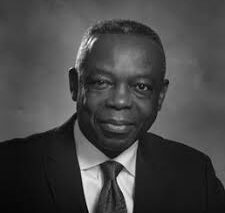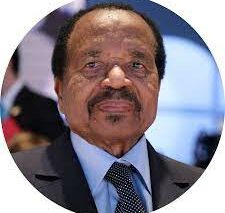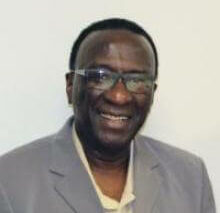In the following interview, conducted in 2006 but which still has its relevance today, Sierra Leonean-born Professor of African literatures, Michael Abioseh Porter of Drexel University in Philadephia, USA, discusses, among other issues, the role the internet is playing in fostering creative writing in Africa.
Professor Porter, we are now seeing a new crop of African writers and critics taking over from the older generation of the Achebes, the Soyinkas, the Ngugis, etc. What do you, as someone in the middle of such changes, see as the trend in African writing and literary criticism today?
There are many different trends coexisting with one another. After the generation of the Achebes and the Soyinkas, we now indeed have a new crop of very young writers who are expressing themselves in a vigorously new way. We have people like Niyi Osundare from Nigeria, Syl Cheney-Coker from Sierra Leone, and others who are now being succeeded by an even younger generation of the likes of Okey Dibe from Nigeria, Bate Besong from Cameroon, Zoe Wicomb from South Africa, Yvonne Vera, a vibrant voice from Zimbabwe that death, unfortunately, silenced not long ago; there is also Calixte Beyala from Cameroon and others, who use language in a completely different way from the previous generation and treat issues of contemporary Africa from a different perspective.
With the elimination of colonialism and Apartheid in South Africa, both themes that used to feed literary creativity in Africa, what has been holding the attention of many of these young writers in Africa today?
African writers of today, as of yesterday, continue to tackle more or less the same issues on a daily basis: human interest stories, corruption among the political elite, civil wars, etc. The difference seems to be the violence of tone and the general belief that it isn’t enough to raise and criticize such issues, but also that something must be done about it. Gender relations, the spread of AIDS, the use of children as soldiers in wars constitute some of the themes modern African writers are grappling with these days. In a novel entitled A Squatter’s Tale, Eke Igweni from Nigeria looks at the ways Africans living in the United States are surviving the culture shock, how they are adjusting to a completely new environment abroad. People leave Africa for what they believe to be greener pastures in Europe or North America only to discover the raw reality of the harsh life awaiting them.
The Internet seems to be coming in too as a vibrant medium for literary expression. Tell us about your experiences in this area.
From my own personal observation of what is happening in Sierra Leone, I see that many discussion groups are being created all over Africa. When one such Sierra Leonean discussion group first started on the Internet, it was a vigorous and interesting forum for the exchange of ideas. But then it became quite boring with people dumping all kinds of things in it. It was a place where anything was said about anyone at anytime. However, over the years, I began to discover all types of creative pieces – poems, short stories – making their appearances from time to time. I gathered a few of them and wrote about them in the same medium. Overnight, such creativity just exploded with people sending in more and more creative material. It got to a point where the moderator had to create a separate section for such budding creativity. It would, of course, be an editor’s nightmare to separate the wheat from the chaff from material published in such an un-moderated forum, but this forum has shown that there are many people out there who have ideas to express and are happy to have such a forum to express themselves on. It is evident to some of us that only good can come out of such endeavours.




